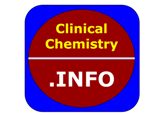Clin Chem Lab Med. 2025 Mar 25. doi: 10.1515/cclm-2024-1387. Online ahead of print.
ABSTRACT
OBJECTIVES: We determined the efficacy of a high sensitivity cardiac troponin I (hs-cTnI) assay for newly derived 0 h and 0/2-h rule-out concentrations for myocardial infarction and determined the safety of incremental changes at low concentrations.
METHODS: Consecutive, emergency department patients undergoing serial hs-cTnI testing on clinical indication were studied in the ‘Mindray hs-cTnI Assay Analytical and Clinical Evaluation for the Diagnosis and RIsk Assessment of Myocardial InfarctIon’ (MERITnI) trial. Primary safety outcome was the composite of cardiac death and MI at 30 days.
RESULTS: In 1,556 patients (60.7 % male, 43.3 % White, 45.8 % Black. 34.8 % chest pain), 26.9 % patients had at least one hs-cTnI >99th percentile. 2.7 % had type 1 MI, 2.7 % type 2 MI, and 21.5 % non-MI myocardial injury. Single-sample MI rule-out using a normal ECG plus hs-cTnI of <2 ng/L (rounded) ruled out 13.8 % of patients, including early (<2 h) presenters. A 2-h delta of <2 ng/L ruled out an additional 39 % of patients. Based on European Society of Cardiology guidance, derived 0 h<15 ng/L and derived delta of <5 ng/L ruled out 42 % of patients. The Mindray assay showed incremental (non-rounded) analysis discriminated rule out from baseline of <0.1 ng/L at 1.2 % to 2.0 ng/L at 17.0 %. There were no missed adverse outcomes at 30-day assessment for composite of MI and cardiac death.
CONCLUSIONS: The novel Mindray hs-cTnI assay enabled safe and early rule out of MI and cardiac death at very low concentrations in a diverse, cohort utilizing both single sample and 0/2-h rule out protocols, including early presenters.
PMID:40123573 | DOI:10.1515/cclm-2024-1387
